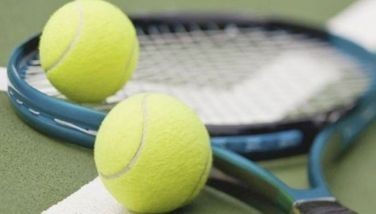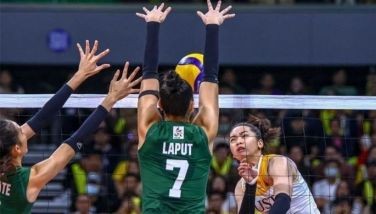Tchoukball world champions?
Tchoukball is one of the sports that has not yet made it to mainstream consciousness in the Philippines, but is one of the sports where Filipinos are already making a dent internationally. Like lawn bowls (where the country has a world champion), petanque, handball and a handful of other sports, it has taken superhuman effort by a relatively small group to bring the nation’s name up among the elite of the sport.
What is tchoukball?
Tchoukball actually began as a warm-up or practice sport for handball, since it’s difficult to get a lot of practice in if you’re always running after the ball. In the 1970s, Swiss biologist Hermann Brandt developed it as a way to more efficiently prepare the Swiss handball team. The sport is usually played on an indoor court measuring 27 meters by 16 meters. Nine players see action for a side when playing on a regular handball court. When on a basketball court (as is more common in the Philippines), seven players are fielded at any one time. A total of 12 players may be on a team’s roster.
The objective is simple: an attacking player must bounce the ball off the frame (which resembles a trampoline, but is placed diagonally upright) at either end of the floor. If it bounces on the floor outside the marked semi-circle around the frame without getting caught by a defending player, that counts as one point. But beyond that, tchoukball encourages one to avoid conflict. Like netball, the players are not permitted to physically interfere with players of the other team. They may not intercept a pass, interfere with the person carrying the ball or stop a player from taking a shot. The defending team instead positions themselves to defend the ball against the tchouk or bounce. The overall philosophy of Brandt was to give the sport a higher purpose, to promote a more humane society through the practice of the sport. So far, it has caught on in many parts of the world.
Today, the Tchoukball Association of the Philippines (TAP) men’s and women’s teams leave for Taiwan to compete in the second World Beach Tchoukball Championships scheduled from Aug. 14 to 18 at the Sunset Beach Resort, Kaohsiung City. The 21-member delegation is headed by TAP president and Asia-Pacific Tchoukball Federation official (APTBF) Raymund Jamelo, Elvira Jamelo – a member of Federación Internacional de Tchoukball (FITB) Executive Committee, lawyer Juliana Carbon – a member of the APTBF Executive Committee, team manager Reve Abelarde, team coordinator Jozel Maiko Brasileno and team chaplain Jonie Brasileno.
“Tchouckball is a non-contact sport that puts emphasis on fair play, and integrity,“ says Raymund Jamelo. “Our national team is made up of exemplary individuals from Luzon, Visayas and Mindanao, who are greatly honored to represent our country on the sands of Kaohsiung, Taiwan this year.”
Completing the national women’s squad are assistant coach-referee Corinth Chua from Cebu, players Nadine Julia Crisostomo (team captain), Mary Abelarde, Ashley Julienne Pedregosa, and Ivanna Aguilar from Bacolod City; and Hamida Kaylah Baluchi, Shenia Clarisse Tagarda, and Angel Therese Arapan from Butuan City. For the men’s division, leading the team are head coach, referee and player John Elray Jamelo, assistant coach, referee and player Benjie Oray, Rik Aldrei Despojo and Josiah Su of Bacolod City; Jasper Ray Tagarda from Butuan City, and Lee Tomas and Josiah Inigo Yucoco of Manila.
“It is an honor to play and officiate in this year’s World Beach Tchoukball Championships. As a player and a referee of this gentleman’s sport, Tchoukball has influenced my perspective in life,” says Josiah Yucoco, son of Major General Job Yucoco.
There are 14 teams competing in the men’s division, and nine for the women’s side from Argentina, France, Czech Republic, Korea, Hong Kong, Singapore, Malaysia, New Zealand, Nepal, Macao, Poland, Brazil, United Arab Emirates, the African Tchoukball Confederation (Uganda, Cameroon, Mauritius, Ghana, and Ivory Coast), Philippines and of course, host Taiwan. While the tournament is running, the FITB will hold its general assembly with 33 member countries attending.
Given that this sport teaches fair play, encourages unity, has no contact, and promotes athletic ability, explosiveness, quickness and strategy, it would be a great school sport in the Philippines, and can actually be played on almost any open space. And if we win a world championship next week, maybe the mainstream media will also give tchoukball a close look. For now, the intrepid band of pioneers heading to Taiwan has our wishes for victory.
- Latest
- Trending



























